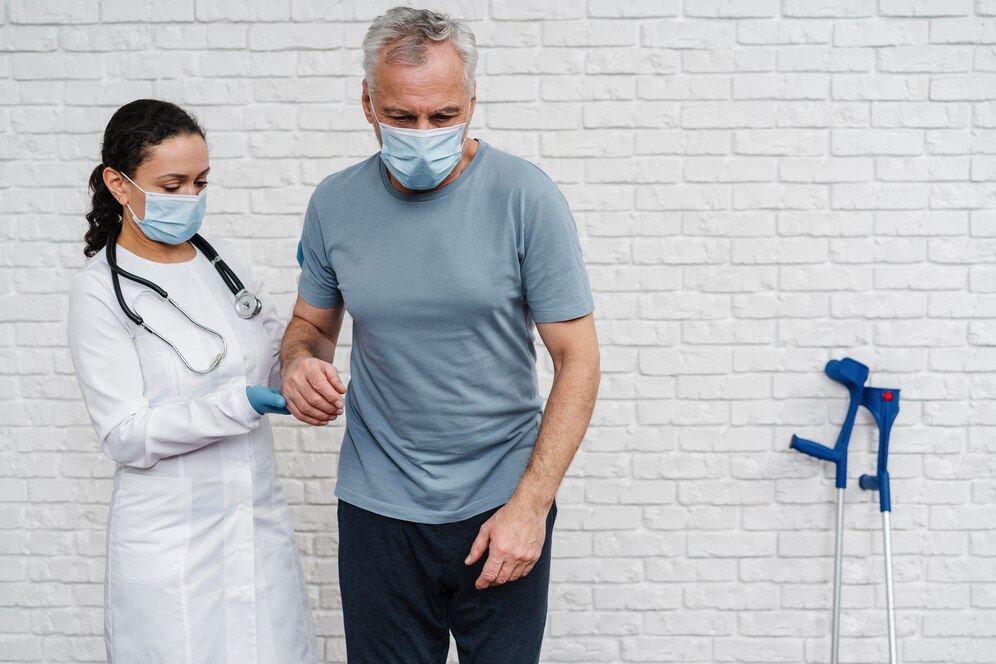Kidney stones can be painful, but not all cases require surgery. For many patients, non-surgical treatments provide effective relief and allow the stone to pass naturally. In Dubai, where dehydration and dietary factors often contribute to kidney stone formation, understanding non-invasive options is crucial for managing this condition. Dr. Anurag Kumar, a leading urologist in Dubai, specializes in treating kidney stones using both surgical and non-surgical methods, depending on the patient’s condition.
This blog covers the non-surgical methods for treating kidney stones and identifies which patients are most suitable for these treatments.
What Are Non-Surgical Treatment Options for Kidney Stones?
Non-surgical treatment methods focus on breaking down or helping pass the stones without the need for surgery. These options are typically effective for small to medium-sized stones and for patients who can tolerate passing the stones naturally. Below are the most common non-surgical methods:
1. Medications to Help Pass Stones
Certain medications can help ease the pain and facilitate the passage of kidney stones:
- Alpha Blockers: These medications, such as tamsulosin, relax the muscles in the ureter, making it easier for the stone to move out of the urinary tract. This is especially useful for stones located in the lower ureter.
- Pain Relievers: Non-steroidal anti-inflammatory drugs (NSAIDs) like ibuprofen or naproxen help manage the pain associated with kidney stones while they pass.
- Uric Acid Lowering Medications: If the stones are made of uric acid, medications like allopurinol can lower uric acid levels in the urine, helping dissolve the stones over time.
2. Extracorporeal Shock Wave Lithotripsy (ESWL)
ESWL is a common non-invasive treatment for kidney stones that uses shock waves to break large stones into smaller pieces that can be passed more easily through urine. The process is outpatient and does not require surgery, making it an ideal choice for patients who want to avoid invasive procedures.
- How It Works: High-energy shock waves are directed at the kidney stone from outside the body, fragmenting it into smaller pieces.
- Recovery: Patients can typically return to normal activities within a day or two, although some may experience mild discomfort and blood in the urine as the fragments pass.
3. Increased Hydration and Diet Adjustments
For smaller stones, especially those made of calcium oxalate or uric acid, increased water intake and dietary changes may help pass the stone naturally:
- Hydration: Drinking at least 2 to 3 liters of water daily can help flush out the stones by keeping the urine diluted.
- Diet: Limiting foods high in oxalates (e.g., spinach, nuts, chocolate) and reducing salt intake can help prevent the formation of additional stones. Reducing protein consumption may also help if you’re prone to uric acid stones.
4. Observation and Monitoring
In cases where the kidney stone is small and not causing any significant symptoms, your urologist may recommend a watchful waiting approach. In this scenario, the stone is allowed to pass naturally over time without the need for intervention. During this period, pain is managed with medication, and regular imaging tests are done to track the stone’s progress.
Who Is Suitable for Non-Surgical Kidney Stone Treatment?
Not all kidney stone cases require surgical intervention. Non-surgical treatments are typically recommended for:
- Small Stones: Stones that are less than 5 mm in size usually pass on their own, given time and adequate hydration.
- Stones Without Complications: If the stone is not causing severe pain, infections, or a blockage in the urinary tract, non-surgical treatments can be effective.
- Patients Without Severe Pain: Patients experiencing manageable discomfort can often opt for non-invasive options, supported by pain management techniques.
- Uric Acid Stones: Stones formed from uric acid can often be treated with medications to lower the uric acid levels, preventing stone growth or even dissolving smaller stones.
- First-Time Stone Formers: Patients who are dealing with their first kidney stone and have no history of recurrent stones may benefit from non-surgical treatments.
If the stone is too large (greater than 10 mm), causing a urinary blockage, or associated with infection, surgical intervention, such as laser lithotripsy or ureteroscopy, may be necessary. Consulting with Dr. Anurag Kumar, a specialist urologist in Dubai, is crucial to determine the best treatment plan.
Conclusion
For many patients, non-surgical treatment options provide effective relief from kidney stones without the need for invasive procedures. Whether through medications, ESWL, or simple lifestyle adjustments, there are several ways to manage kidney stones naturally. However, it’s important to consult a qualified urologist like Dr. Anurag Kumar in Dubai to assess the size and type of the stone and determine the most appropriate course of action.If you’re experiencing symptoms of kidney stones and would like to explore non-surgical treatment options, contact Dr. Anurag Kumar at Aster Cedars Hospital in Dubai for expert consultation and personalized care.

